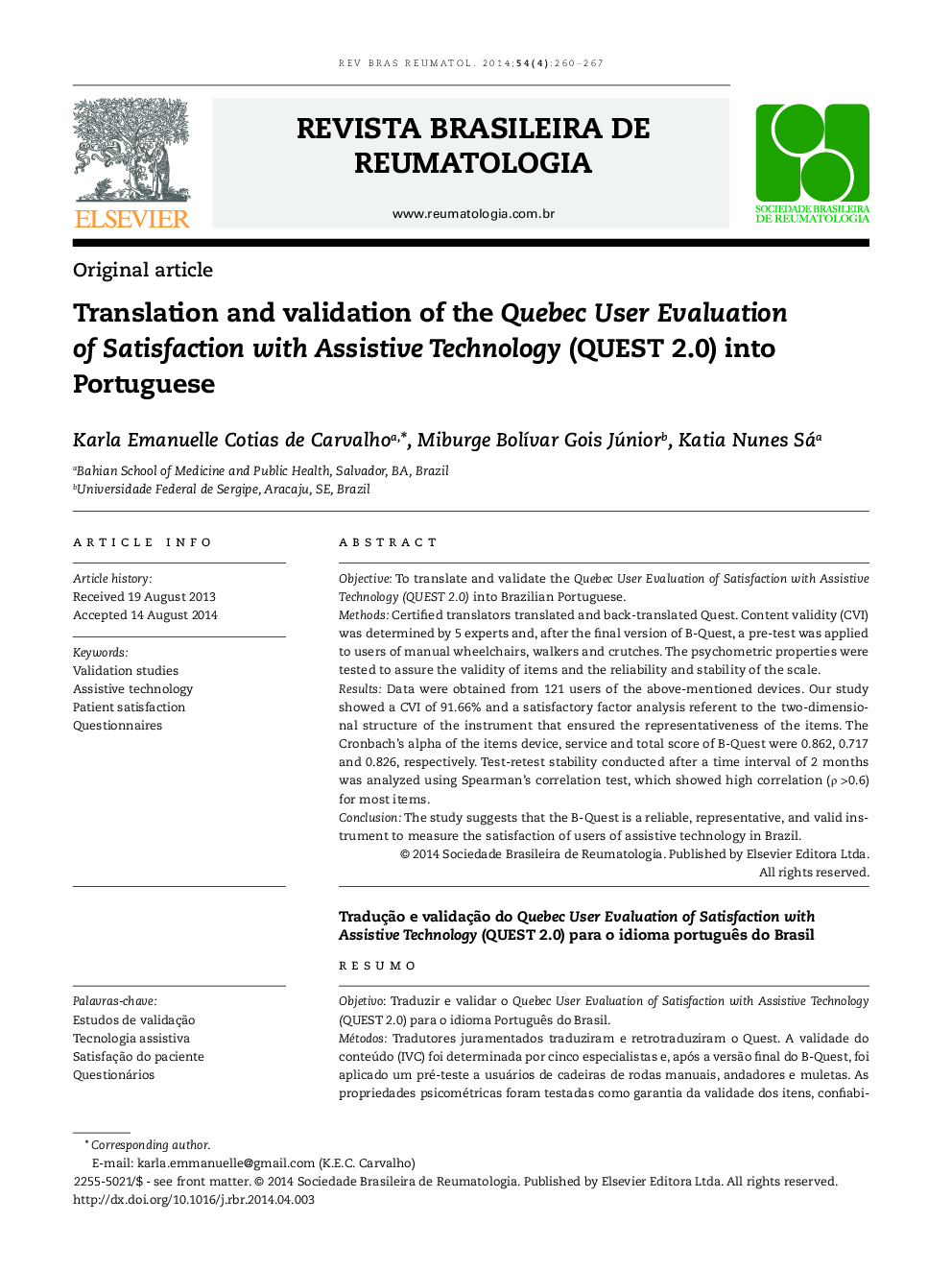| Article ID | Journal | Published Year | Pages | File Type |
|---|---|---|---|---|
| 3385259 | Revista Brasileira de Reumatologia (English Edition) | 2014 | 8 Pages |
ObjectiveTo translate and validate the Quebec User Evaluation of Satisfaction with Assistive Technology (QUEST 2.0) into Brazilian Portuguese.MethodsCertified translators translated and back-translated Quest. Content validity (CVI) was determined by 5 experts and, after the final version of B-Quest, a pre-test was applied to users of manual wheelchairs, walkers and crutches. The psychometric properties were tested to assure the validity of items and the reliability and stability of the scale.ResultsData were obtained from 121 users of the above-mentioned devices. Our study showed a CVI of 91.66% and a satisfactory factor analysis referent to the two-dimensional structure of the instrument that ensured the representativeness of the items. The Cron-bach's alpha of the items device, service and total score of B-Quest were 0.862, 0.717 and 0.826, respectively. Test-retest stability conducted after a time interval of 2 months was analyzed using Spearman's correlation test, which showed high correlation (ρ >0.6) for most items.ConclusionThe study suggests that the B-Quest is a reliable, representative, and valid instrument to measure the satisfaction of users of assistive technology in Brazil.
ResumoObjetivoTraduzir e validar o Quebec User Evaluation of Satisfaction with Assistive Technology (QUEST 2.0) para o idioma Português do Brasil.MétodosTradutores juramentados traduziram e retrotraduziram o Quest. A validade do conteúdo (IVC) foi determinada por cinco especialistas e, após a versão final do B-Quest, foi aplicado um pré-teste a usuários de cadeiras de rodas manuais, andadores e muletas. As propriedades psicométricas foram testadas como garantia da validade dos itens, confiabilidade e estabilidade da escala.ResultadosForam obtidos dados de 121 usuários dos dispositivos mencionados. Nosso es-tudo demonstrou um IVC de 91,66% e uma análise de fatores satisfatória com referência à estrutura bidimensional do instrumento, o que assegurou a representatividade dos itens. Os coeficientes alfa de Cronbach dos itens «dispositivo», «serviços» e «escore total» do B--Quest foram 0,862, 0,717 e 0,826, respectivamente. A estabilidade de teste-reteste, reali-zada após terem transcorrido dois meses, foi analisada com o uso do teste de correlação de Spearman, tendo sido demonstrada elevada correlação (ρ>0,6) para a maioria dos itens. Conclusão: O estudo sugere que o B-Quest é um instrumento confiável, representativo e válido para a medição da satisfação de usuários de tecnologia assistiva no Brasil.
